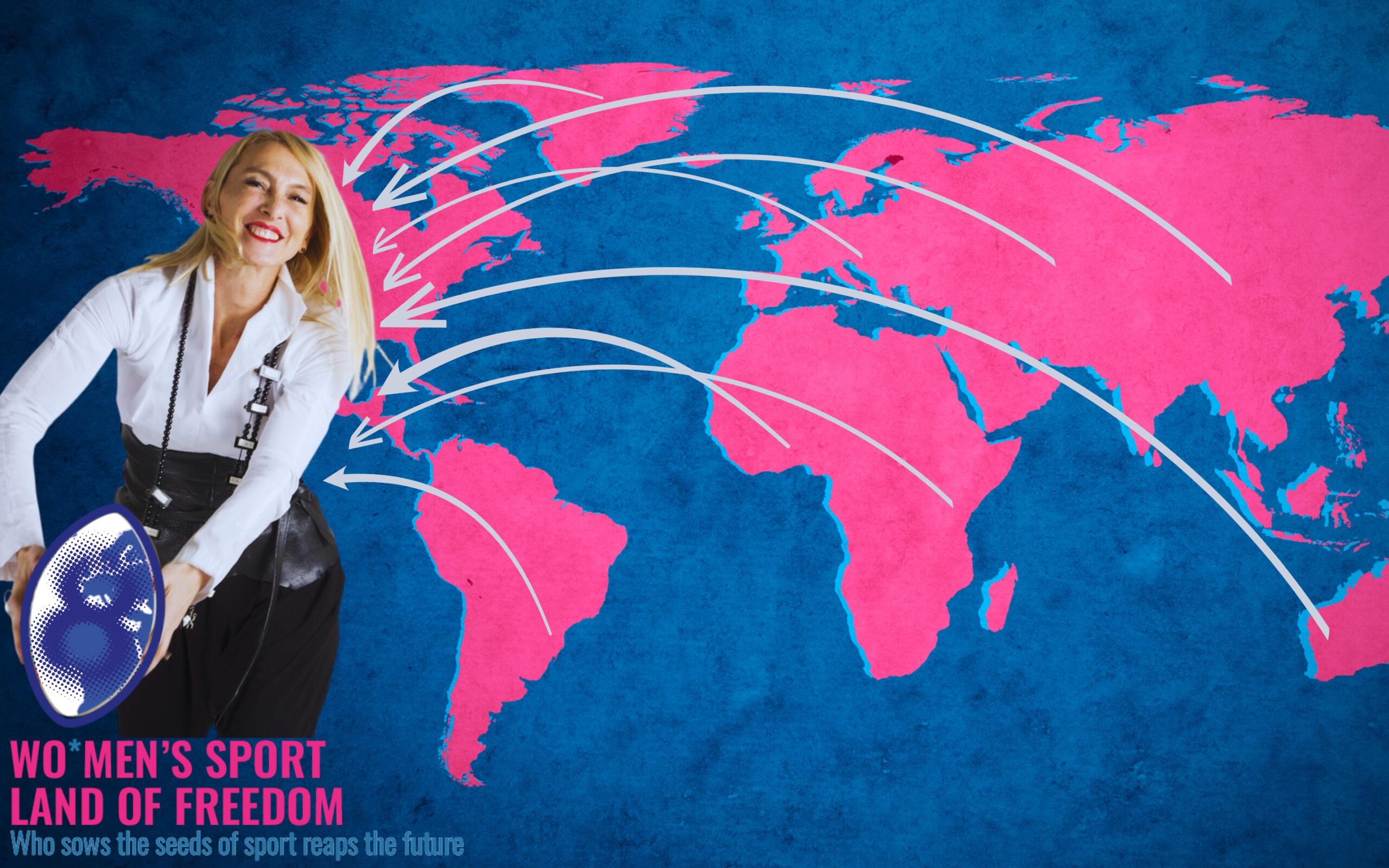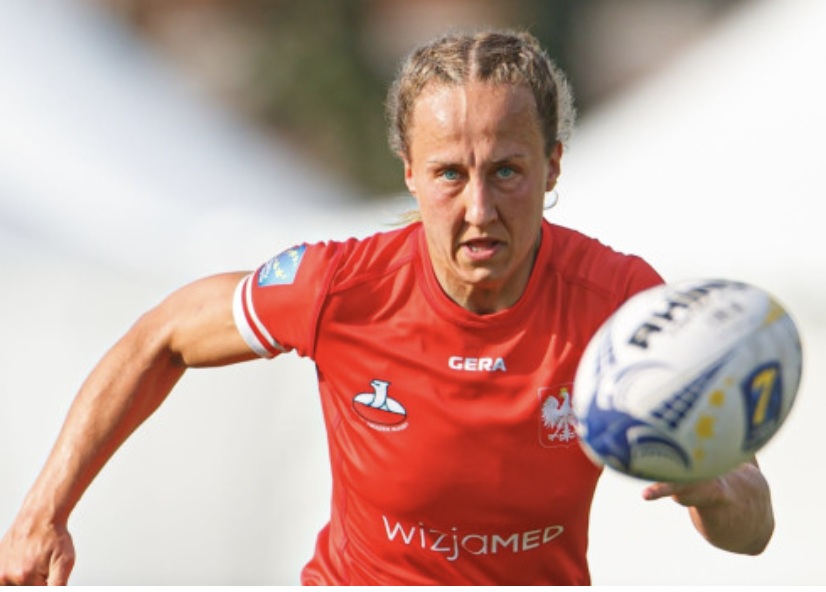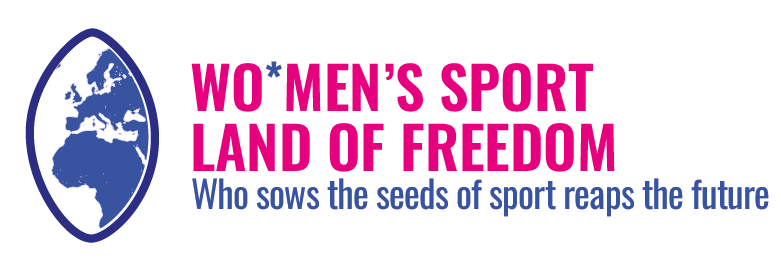
POLAND: I REMEMBER WHEN FOUNDED OUR RUGBY CLUB IN GDAŃSK,POLAND. WE WANTED TO MAKE THIS FANTASTIC SPORT KNOWN.
“I remember when we founded our rugby club in Gdańsk, Poland. We wanted to make this fantastic sport known”

Thanks to:
Karolina Jaszczyszyn
Former Poland 7s international, Coach and Manager at the Polish Rugby Union
- The history of the women’s movement in Poland
- Testimonials
- Reading time: 7 minutes
POLAND - Find out more
Poland is a parliamentary republic in Central Europe with about 37.6 million inhabitants (2023), with a slightly female-majority population. Women hold about 29.6% of seats in parliament, reflecting moderate political representation. Female labor force participation is around 51–52%, significantly lower than men’s (about 66%), and vulnerable to structural inequalities. The country has adopted most legal frameworks to promote gender equality, and the adolescent birth rate is low (around 6 per 1,000 among 15–19-year-olds), but challenges remain in addressing inequalities in the workplace and within families.
(Source: Demographics of Poland; List of European countries by percentage of women in national parliaments; Gender Data Portal – World Bank; TheGlobalEconomy.com; data.unwomen.org)
HISTORY OF THE COUNTRY
1. When did the women’s rugby movement start in your country and what is the history of women’s rugby in your country? How many clubs are there, and how is women’s rugby structured in your country?
In 2001, with the First Official Polish Women’s Rugby Sevens Championship. 20th Anniversary of the First Official Polish Women’s Rugby Sevens Championship. Today, women’s rugby in Poland is our showcase. The national team is competing for Olympic qualification, and the Polish Championship consists of a series of 8 well-organized tournaments, divided into 3 leagues. But 20 years ago, the situation was very different — and that’s exactly what I want to reflect on. 2001 – The Beginnings. An extraordinary coincidence marked the spring and summer of 2001, when three women’s rugby teams were founded independently of one another. The best-known story is that of the Hool’s Girls Arka Gdynia, captained by Ewelina Jelińska (Radke) and coached by Marek Rosa. They were the first Polish women’s team to participate in an official competition — an open beach rugby tournament in Gdynia. Almost at the same time, thanks to Natalia Cajzer and coach Aleksiej Bekov, the Piranie Ogniwo Sopot began training. Soon after, Tomasz Ertman encouraged Adrianna Góras to gather her friends and form a team in Sochaczew. All three teams met for the first time on September 30, 2001, in Sochaczew, during the men’s Masif Cup tournament. The hosts fielded two teams and… were very hospitable, finishing behind the winners from Gdynia and Sopot. This tournament went down in history thanks to significant media coverage, with articles in Super Express and Życie Warszawy. It is worth remembering that until 2003, matches were played with simplified rules — no scrums, no lineouts, no conversions, and pitches reduced by 5 meters on each side. 2002 – The First (Unofficial) Women’s Rugby Sevens Championship in Poland. A year later, on May 1, 2002, again in Sochaczew, during the Men’s Rugby Sevens Championship, a women’s tournament was held, announced as the First Polish Women’s Rugby Sevens Championship (MPK7). Although treated as official by the media and in awards, due to procedural issues (lack of registration with the Ministry), the official title and medals had to wait another year. 2003 – The First Official Women’s Rugby Sevens Championship in Poland and the Baltic Cup. The regulatory doubts were resolved on May 31, 2003, when the teams met for the third time in Sopot during the international men’s Hodura Cup. This time, teams were also allowed to score conversions. The Hool’s Girls dominated, winning both matches without conceding a point, thus becoming the first official Polish champions. That same year, on September 20, the first international women’s rugby sevens tournament was held in Sopot — the Baltic Cup — which featured: The first international participant (Lithuania). / The debut of a new team — Tur Chojnice, led by Dariusz Żmuda-Trzebiatowski and captained by Marlena Mroczyńska. 2023 – Memories. All the teams from 2003 have since disbanded. The Piranie folded in 2004, the Hool’s Girls lasted until 2013 (though Arka Gdynia was re-established in 2021), and the Tygrysice played their last match in 2019. In April 2023, during a Polish Championship tournament in Gdańsk, the opportunity arose to remind current players and fans of those early days. Thanks to the hospitality of tournament organizer Marlena Mroczyńska and the Biało-Zielone Ladies Gdańsk team, along with support from the Polish Rugby Federation — especially Bartosz Ryś and Piotr Popławski — several pioneers were honored and history was celebrated.
National Team and Structure. The national team is competing for Olympic qualification, and the Polish Championship consists of a series of 8 well-organized tournaments, divided into 3 leagues. Women’s Rugby Sevens Structure in Poland: The Polish Women’s Rugby Sevens Championship (MPK7) is the main competition in this discipline. / The 2024/2025 season includes a series of tournaments in which teams compete for points in the overall ranking. / Based on accumulated points, the Polish champions are determined. / For the 2024/2025 season, eight tournaments are scheduled, with 14 teams participating from across the country.
2. Do you think playing rugby has a social impact for a woman in your country?
Yes, absolutely. In Poland, women’s rugby is still not very well known, so a woman playing this sport often breaks stereotypes and shows that strength, determination, and courage have no gender. Playing rugby helps women build self-confidence, develop teamwork and leadership skills, and gain respect in contexts where they are often underestimated. This has a real social impact, because it inspires other women and girls to follow their own path — even if unconventional.
3. In your opinion, what can rugby give to women in your country?
Rugby can offer women in Poland a strong sense of belonging, mental and physical strength, and access to a unique, supportive community. It teaches perseverance, assertiveness, and the courage to express oneself. Rugby also opens opportunities for professional growth — as players, coaches, or sports managers. But above all, it can be a tool for social change, showing that women deserve a place in traditionally male-dominated fields, and that their presence enriches both sport and society as a whole.
JOURNEYS THROUGH RUGBY
Excerpt from a video interview:
1. When did you start playing rugby and how did you discover it?
The exact moment is not specified, but the founding of a rugby club in Gdańsk, Poland, is cited as a key turning point:
“I remember when we founded our rugby club in Gdańsk, Poland. We wanted to make this fantastic sport known.”
2. What has rugby taught you that has impacted your daily life? Can you give me an example of when a rugby mindset was useful?
“It taught me values such as self-confidence, focusing on goals, and kindness toward children. (…) I use these values every day. (…) School gave me a free lesson on how to become a great coach. (…) I’m known for doing things immediately and directly. This approach has been essential for everything we’ve achieved.”
3. Can you give me three words that connect rugby with freedom?
Determination: “We work hard, but we also have fun.”
Impact: “We grew the club thanks to our dedication.”
Equality: “I try to treat everyone the same, without favoritism.”
